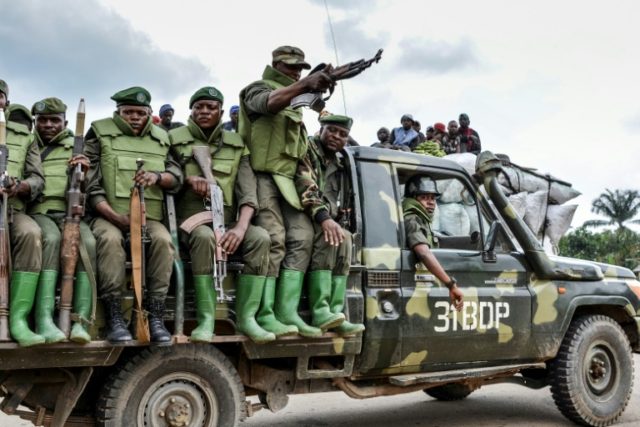The United Nations issued a report on Wednesday that found torture, sexual violence, and extrajudicial murder rampant in the North Kivu province of the Democratic Republic of Congo (DRC), which not coincidentally is grappling with one of the worst Ebola outbreaks in history.
The extreme instability of North Kivu is preventing humanitarian workers and medical personnel from treating Ebola victims and containing the spread of the terrible disease.
The U.N. cited the “expanding number and evolving nature of armed groups fighting both against the security forces and among themselves” as a significant factor in the deteriorating security situation.
The U.N. Joint Human Rights office logged 324 extrajudicial killings and summary executions, 832 cases of “torture or cruel, inhuman, or degrading treatment,” 173 cases of rape and other sexual violence, and 431 victims of forced labor in the area. 58 victims of sexual violence were children.
Two-thirds of the abuses were reportedly perpetrated by armed insurgent groups, while government troops and National Police were responsible for the other third. The DRC army was especially troubling, as the U.N. noted accusations of collusion between army personnel and armed gangs. The report warned public distrust of the army is running high and can only be restored with credible investigations and prosecutions.
“In some villages of Masisi and Lubero, sexual violence is being used in a deplorable, systematic and particularly brutal way by certain armed groups to punish and intimidate whole communities,” said U.N. High Commissioner for Human Rights Michelle Bachelet.
The U.N. warned these human rights abuses are making the Ebola outbreak worse not only because aid workers are prevented from reaching victims, but because the violence is triggering refugee displacements that threaten to spread Ebola.
Another problem highlighted by Jean-Philippe Marcoux of Mercy Corps is that a curfew was imposed on North Kivu to deal with the security situation and has “slashed the number of hours available to treat victims and work on prevention.”
“Inadequate and short-term funding is a major barrier. Financing just the medical response without simultaneously supporting community engagement undermines the efficacy of the overall response, as does funding that just focuses on the emergency at hand,” Marcoux warned, stressing the importance of building trust with local populations so they will accept treatment and follow protocols to halt the spread of Ebola.
The World Health Organization (WHO) is concerned cross-border travel during the Christmas holiday could spread Ebola from the DRC into Uganda. “We expect the number of people moving across the border might increase from around 300,000 to 500,000 per month,” a WHO official said on Thursday.
The DRC Ministry of Health reported seven new cases of Ebola and seven more fatalities on Wednesday, bringing the total to 549 reported cases and 326 deaths. Another 82 possible cases of Ebola are under investigation. Three additional cases of infection have also been logged in healthcare workers.

COMMENTS
Please let us know if you're having issues with commenting.